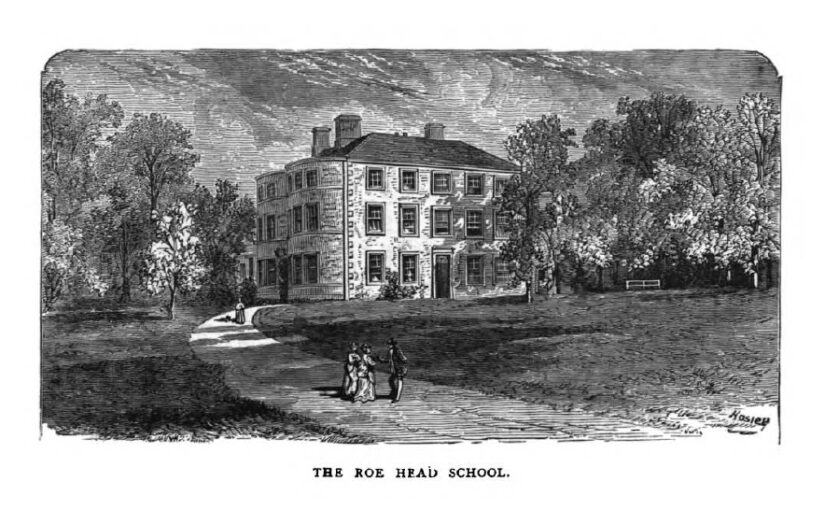Charlotte Brontë spent periods of her life as a teacher at Roe Head school near Mirfield and at the Pensionnat Heger in Brussels, and she also served as a governess to the White family of Upperwood House in Rawdon. Charlotte was far from happy during these employments, and in today’s post we will look at a very revealing letter she sent on this day 1848 in which she looks at the roles of teachers and governesses.
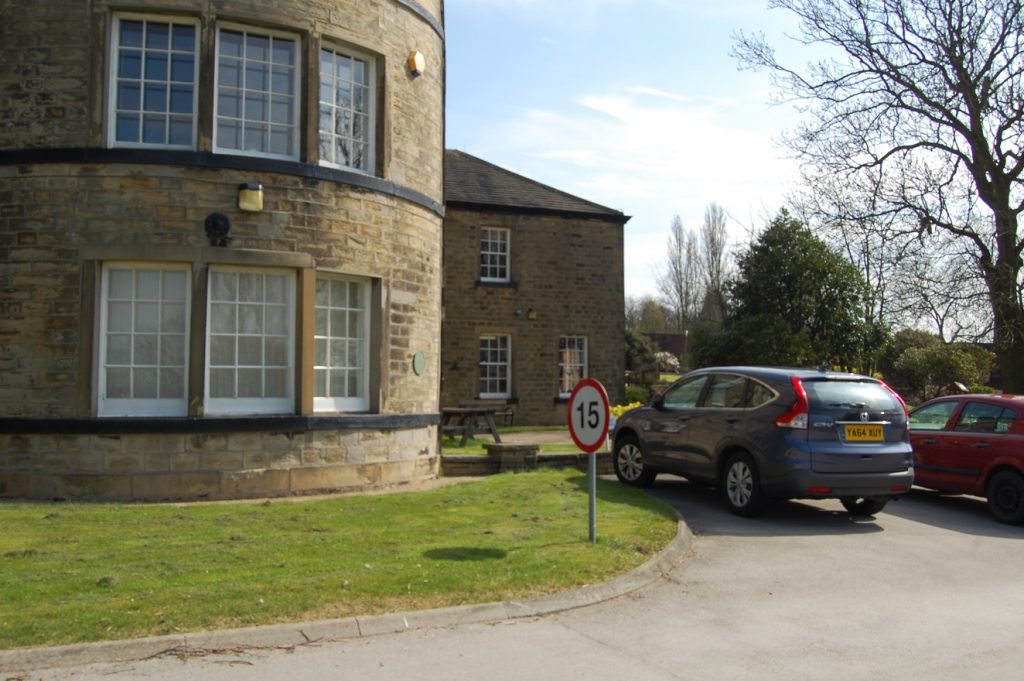
The letter was sent to W. S. Williams of her publisher Smith, Elder & Co. It touches upon Charlotte’s hit novel Jane Eyre, the portrayal of a governess within it and the reality of life as a governess or teacher:
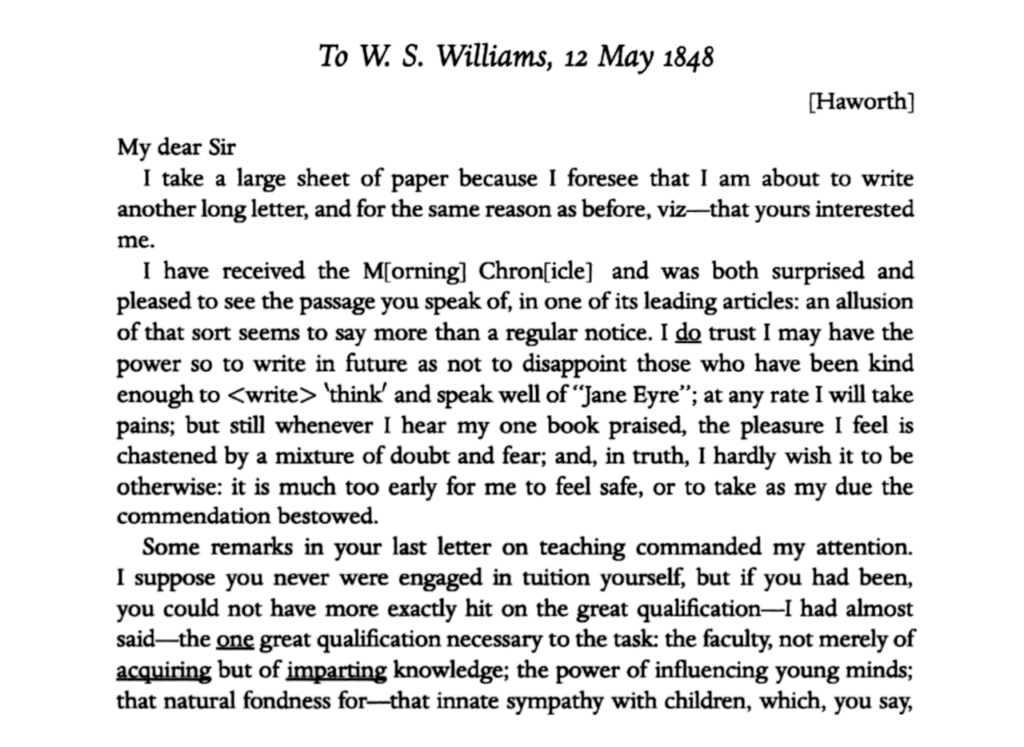
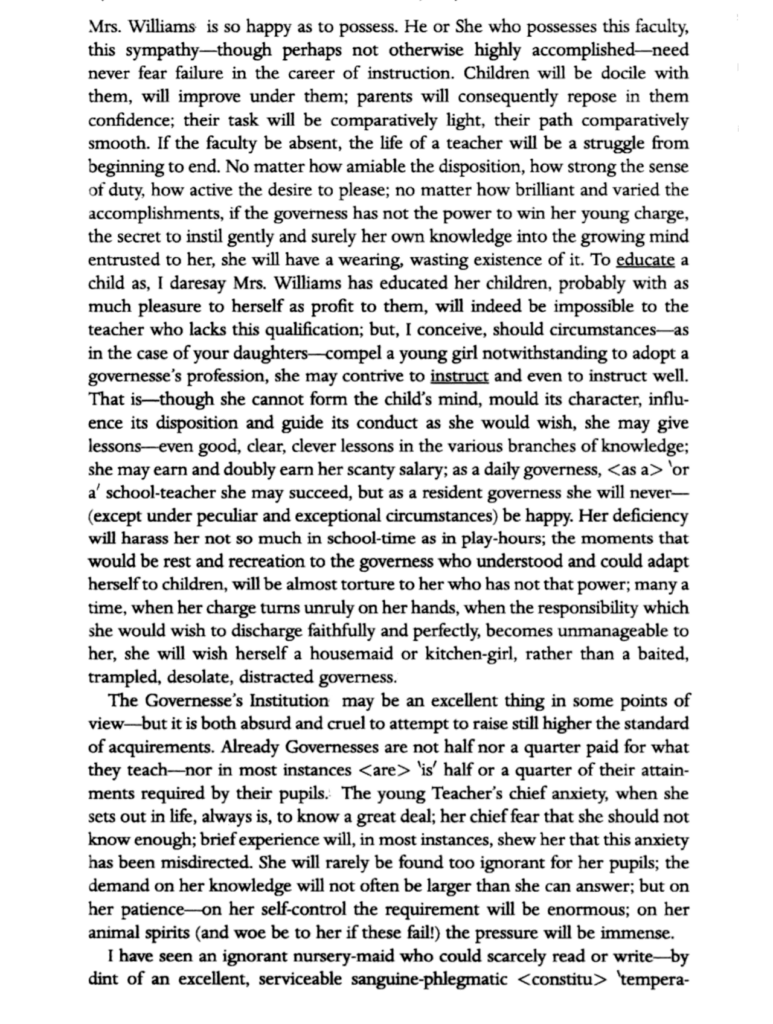
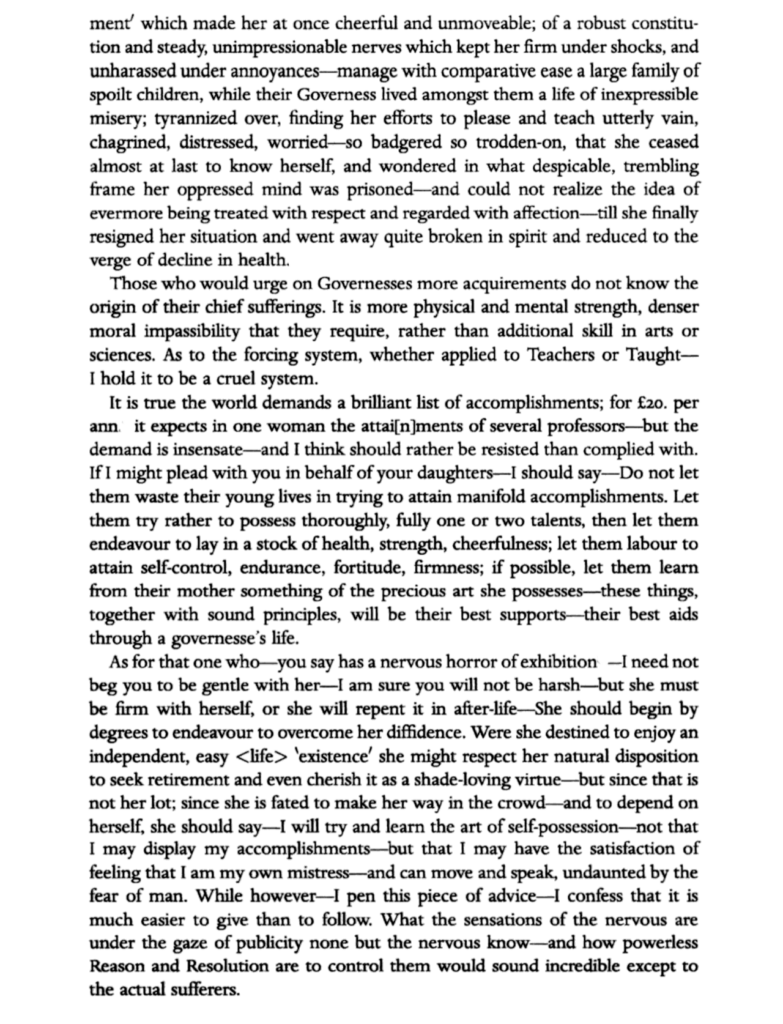
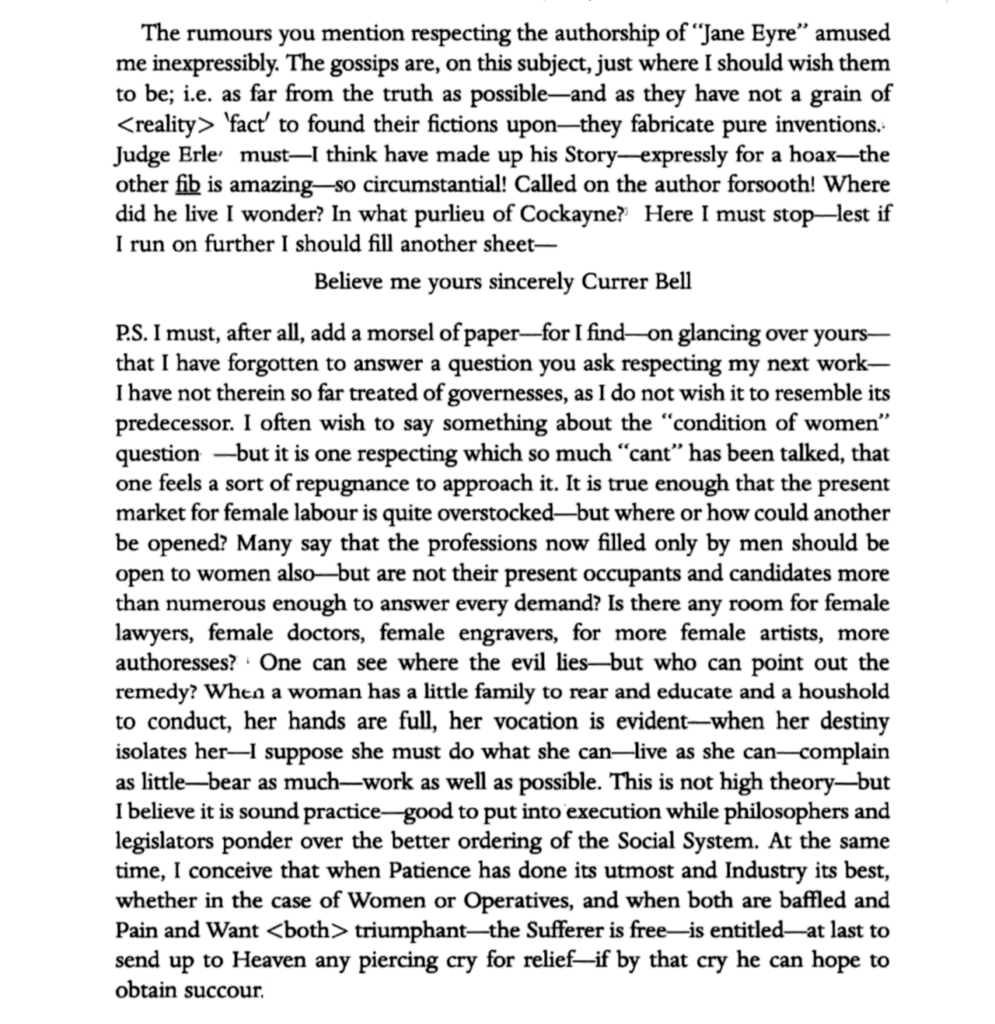
In this letter Charlotte Brontë has laid down the essential qualifications for being a teacher: a fondness of children, a sympathy for them, and a desire to impart knowledge to them. In her series of letters known as the Roe Head journals we see that Charlotte Brontë had very little patience with her pupils or sympathy for them. Charlotte also argues against government plans to bring in minimum educational standards for governesses, arguing that to be successful it is not more knowledge that they need but “self-control, endurance, fortitude, firmness.’
Perhaps the most remarkable section of this long letter by Charlotte Brontë comes in its final section. In this we see an echo of the letter poet laureate Robert Southey had sent many years before; this time it is Charlotte herself who asks if there is room for more female doctors, lawyers, artists and authoresses when many men are struggling to find a role in those professions? Charlotte’s sentence “when a woman has a little family to rear and educate and a household to conduct, her hands are full”, could have come straight from Southey’s quill. We have to rememver that whilst Charlotte was a literary genius of the first order she was also a woman of her time.
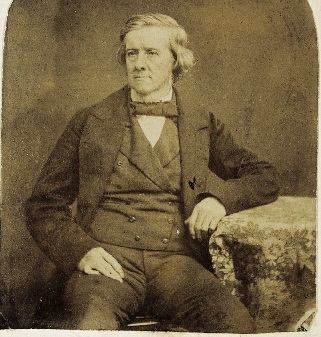
I’m not sure if my posts impart knowledge or “influence young minds”, but I hope you enjoy them and I hope you can join me next week for another new Brontë blog post.
